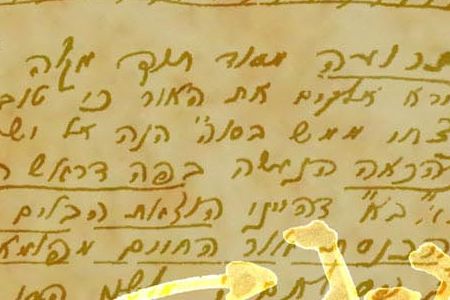Leviticus, 21:1-24:23
This Week’s Torah Portion | Apr 30 – May 06, 2023- 9 Lyyar – 15 Lyyar, 5783
In A Nutshell
The portion, Emor (Say), begins with rules concerning priests, forbidding them to marry a divorced woman, a widow, or a whore, and permitting them to marry only a virgin. They are also forbidden to approach the dead. Only kin are permitted to be defiled and approach the dead. The High Priest is forbidden to be defiled even by his own kin have died. They are forbidden to shave their heads and beards, and they are forbidden to cast any flaws in their bodies. A Cohen (priest) with a blemish in his body will not be considered a priest, and will not be able to serve in the Temple. The portion also introduces laws of purity and impurity for priests, such as the prohibition on eating offerings, and the rules for a barren or divorced daughter of a priest.
The portion also mentions many rules concerning the Sabbath, Passover, the seventh of Passover, Shavuot, the Omer Count, and Yom Kippur (Day of Atonement). The end of the portion speaks of a quarrel between two men, one of whom said the name of the Creator and cursed. He was punished by ejection from the camp and execution by stoning.

Commentary by Dr. Michael Laitman
What is so special about this portion that elaborates so much about priests and festivals?
The correction is only a correction of the heart, which contains all 613 desires we need to correct from using our ego in order to receive into using it in order to bestow, in favor of others and love of others. The whole Torah deals with the correction of the heart. The first stage in the correction of the heart is when we get rid of the ego. The second stage is when we use all of our heart in favor of others.
The portion describes all the levels of correction. It is written, “And you will be to Me a kingdom of priests and a holy nation” (Exodus, 19:6). This means that everyone must reach the highest degree (a Cohen [priest])——following the preparation described in the portions, Aharei Mot (After the Death) and Kedoshim (Holy). The Torah constantly promotes us until we enter the land of Israel and achieve Dvekut (adhesion) with the Creator.
The portion starts with elaborating on the terms of the degree of priests. A person must correct the desires, as it specifies—prohibition on marrying a divorcee, a widow, or a whore. A priest must also avoid shaving his face and his head. He must also maintain these prohibitions until he is corrected and sees his desires in the image of man. It is as we learn regarding the perception of reality: the whole world is a reflection of our desires, an outward projection of our internality.
A priest must have natural desires that have been corrected into aiming to bestow. He must not impair his body, make any kind of paintings on it, or touch his hair. The hair is a special correction. The word Se’arot (hair) comes from the word Se’arah (storm). They are to be corrected and therefore must not be removed.
